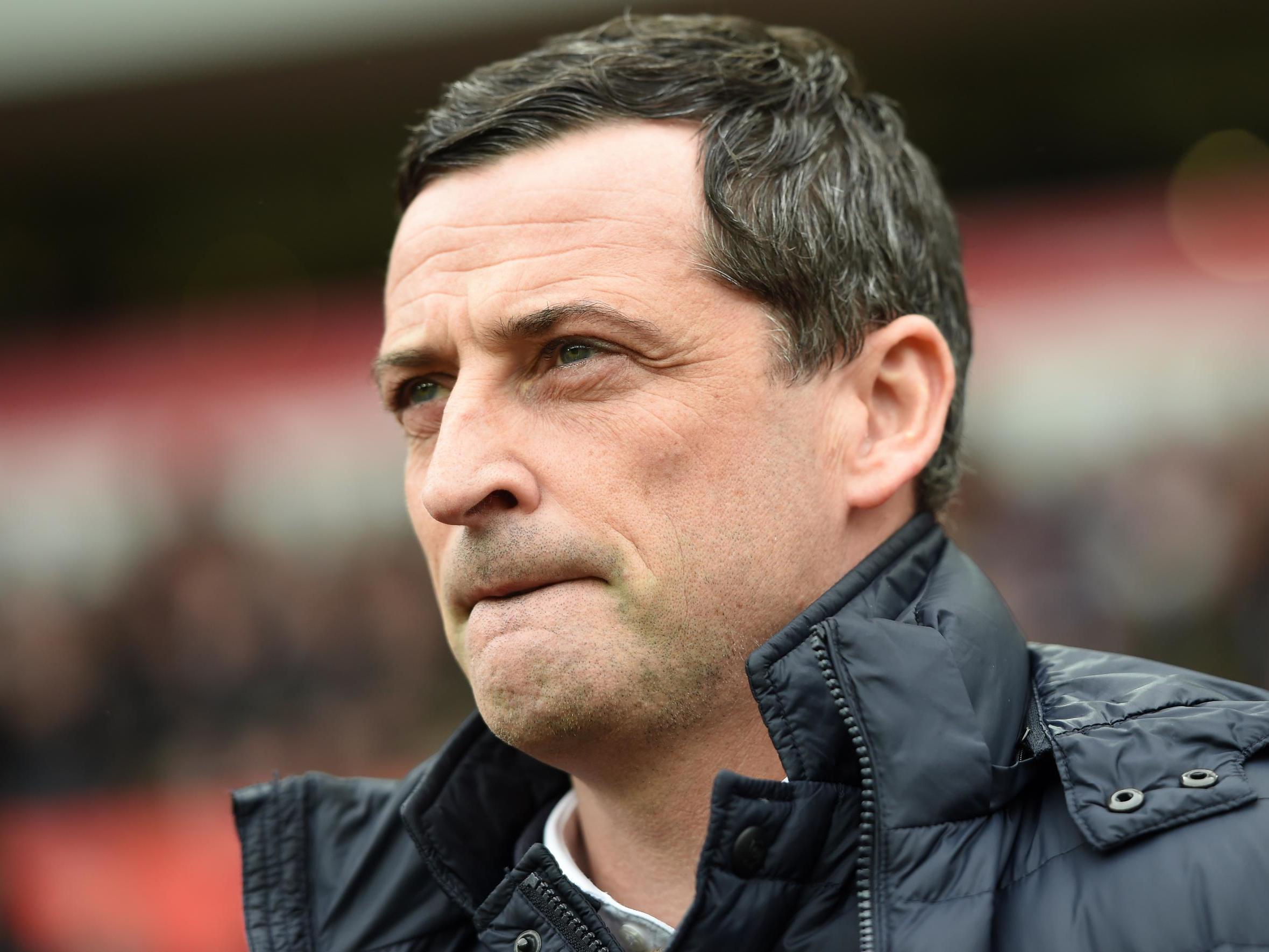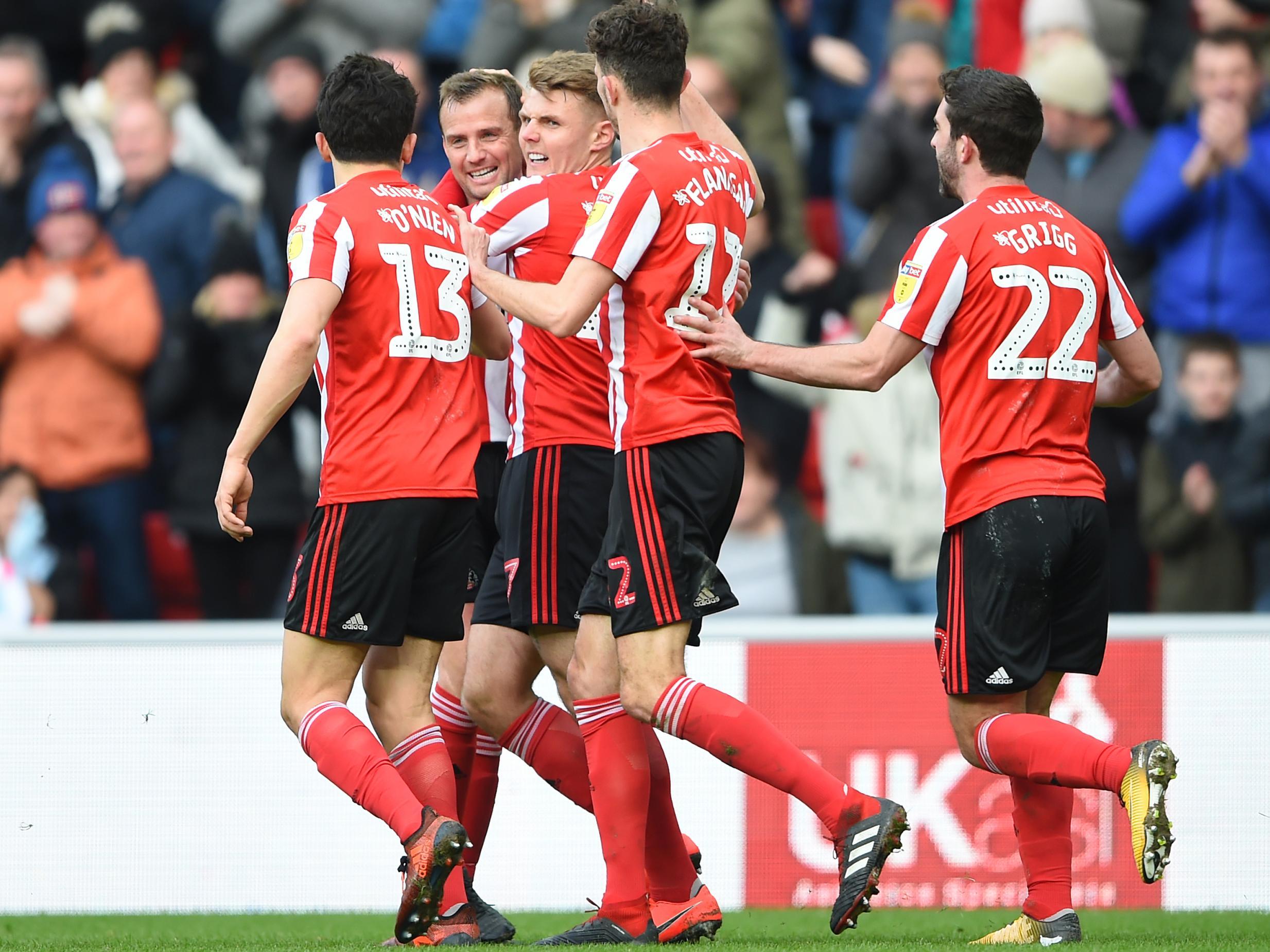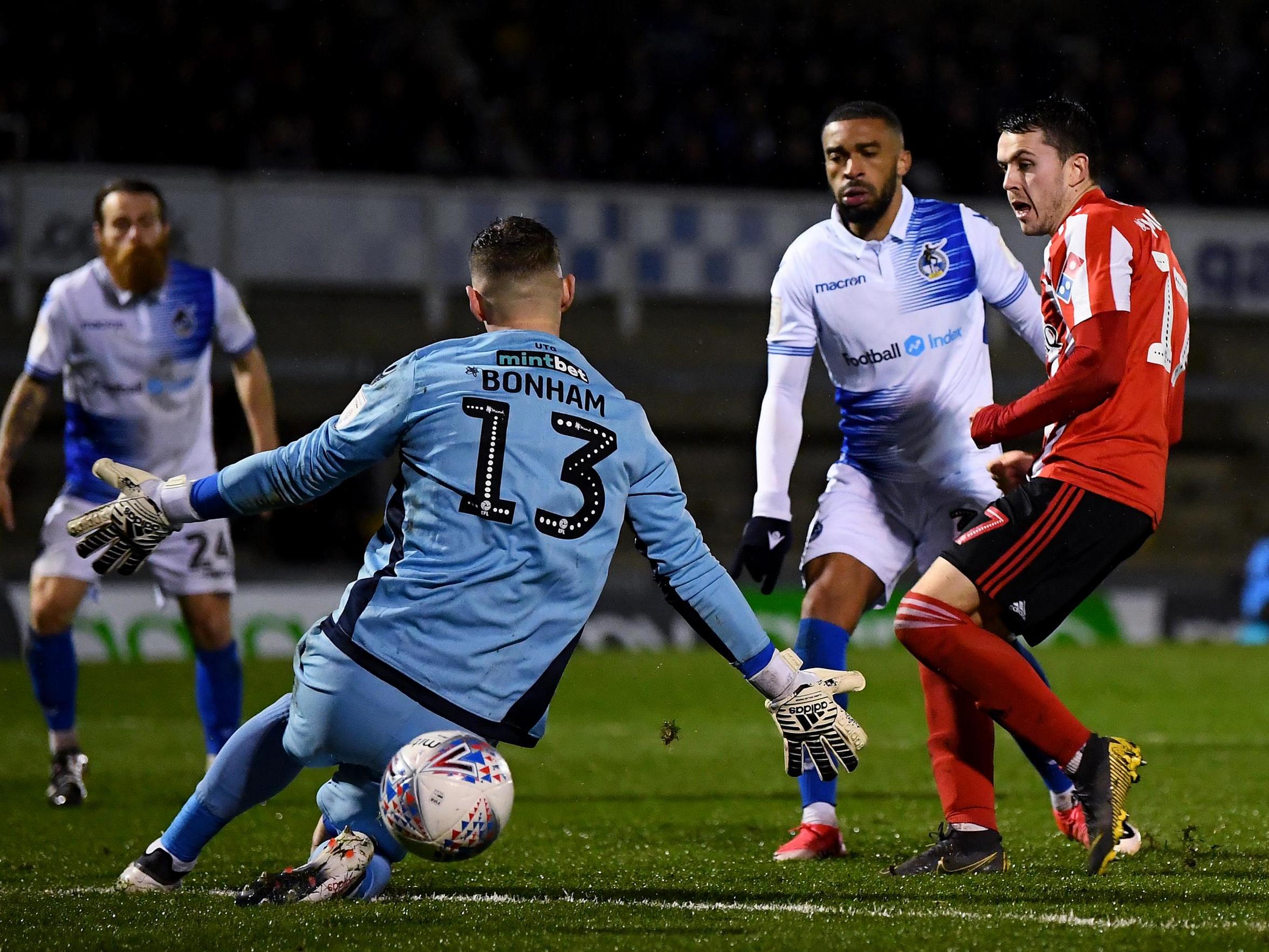Checkatrade Trophy final: How prayer and persistence helped Jack Ross get Sunderland back on track
Exclusive interview: Ahead of his side's Wembley final on Sunday, Ross talks to The Independent about his journey at the Stadium of Light since taking over last year

Tucked neatly away in the pocket of Jack Ross' Wembley suit on Sunday will be a bit of paper given to him by his father, Stewart, many years ago.
‘God, grant me the serenity to accept the things I cannot change,’ it reads, ‘courage to change the things I can, and wisdom to know the difference.’
“My dad gave me it,” says Ross. “It doesn’t need to relate to religion, I’m not religious. He used to carry the same one in his pocket. It’s a brilliant mantra to work with. Accepting the things you can’t change is not easy. The words are wise and relative if you apply them.”
The Serenity Prayer is a good starting point for any Sunderland manager. Ross uses the analogy of turning around an oil tanker that was ploughing on in the wrong direction when he arrived last summer.
He stood and watched the print out (embarrassedly) of his contract in just his shorts in the office of a smart hotel in Dubai on his family holiday and had it counter-signed by his wife by the pool.

Later he would be standing again, along with his backroom staff in the recruitment office (next to his own) at the club’s Academy of Light on the first day of pre-season training that overlooks the pitches.
None of them had any idea how many people would walk out onto that field, ready for a new season. They counted each one out, and ended at 11, a full team, just, with no subs.
By then Ross knew his way around the training facility. He was one of the first to walk back into a shell-shocked football club last summer, following a second successive relegation in May 2018, finishing bottom of the Championship, four years after leading Manchester City at half-time in the final of the League Cup (they eventually lost 3-1).
That, he says, proved to be a major advantage. When people started returning, he never looked lost.
“It was massive thing for me because it made me used to the surroundings,” he says. “I changed the office around. I got used to it. I gradually got to know people as they drifted in. It was challenging, it was tiring, but I’m glad I did it.”
On a shelf in that office, Sir Clive Woodward’s ‘Winning!: The path to Rugby World Cup glory’ sits next to Sir Alex Ferguson’s ‘Leading’. Next to them is the more noisy tome, ‘I Am Zlatan Ibrahimovic.’
“I don’t pour through books,” he adds. “But I have lots of them and I skim a lot and look at bits within them and fold down pages.

“I love public speakers, they fascinate me, even politicians. How skilled and resilient must you be to be going through that and still churn out answers?”
Ross has not needed to reach for that point since moving to England, though there is still a real fight for Sunderland to get promoted, tussling with Barnsley and Portsmouth (their Checkatrade Trophy opponents on Sunday) at present for the second automatic promotion spot.
There is much to Ross’ story. He says that from five years old he wanted to be a footballer. At 18 he was released from Dundee when he was living in digs, told before the last day of the season.
“My head was up my backside,” he recalls. “I probably believed I should be playing professionally. The reality was I wasn’t good enough or resilient enough at that time.
“I went on trial, signed for Forfar part-time, my head was all over the place and I got a place in Uni because I had to do something. I couldn’t just doss around.”
Sunderland’s manager picked up an economics degree. He rebuilt his career too, gaining a Scotland B cap during spells with Clyde, Falkirk and St Mirren. He retired after a knee injury, called Adam Adamson, the manager of Dumbarton when he was working for the PFA, about making a comeback and ended up the club’s assistant as he’d done his coaching badges. He was on £100-a-week back then. He was number one at Alloa and St Mirren and got both clubs promoted. He turned down Ipswich, met Stewart Donald and joined Sunderland when he was in Dubai.
By the time a hectic summer at his new club was over, Ross was into his stride. Each morning, on the videos screens around the academy are the drills that will be worked on in training, over and over. The players know this, having been sent instruction on iPads.

There have been too many draws, 16 in total, but Ross’ rebuilt Sunderland have lost just two league games from 37.
“Every time I make decisions, I always think, ‘How does that player feel?’ Not in the heat of moment. When I take payers off or leave them out, hopefully if you ask my players they’ll say the communication is not only regular, it’s consistent.
“When we lost at Burton we had a good chat after the game, it was the first time we’d lost in the league. A few of them spoke and that was good. I wasn’t shutting them down. It was one for them to go, ‘He means what he says’.
“I like the contact with the players, even in the warm up. If you share your life with people they are more likely to share their life with you.
“Gregor Townsend spoke on our pro license about Golden State Warriors. The NBA have done research into the handshakes and the high fives and the teams that have more physical contact with each other do better.”
Ross’ glory came last summer, in a Glasgow hotel, as the surprise winner of the manager of the year award in Scotland. Still just 42, he adds: “It takes a lot to knock me a little when I’m speaking at anything but I was genuinely shocked that night.”
The Checkatrade Trophy, a subplot to the campaign, now offers another.
“We will take 40,000 fans and more to Wembley. So will Portsmouth. I have seen the excitement around the club and the city since we reached the final. It means a lot from where the club’s been in the last couple of years, what it’s been through. Having this to look forward to is massive for everyone connected with the club.”
Join our commenting forum
Join thought-provoking conversations, follow other Independent readers and see their replies
Comments
Bookmark popover
Removed from bookmarks